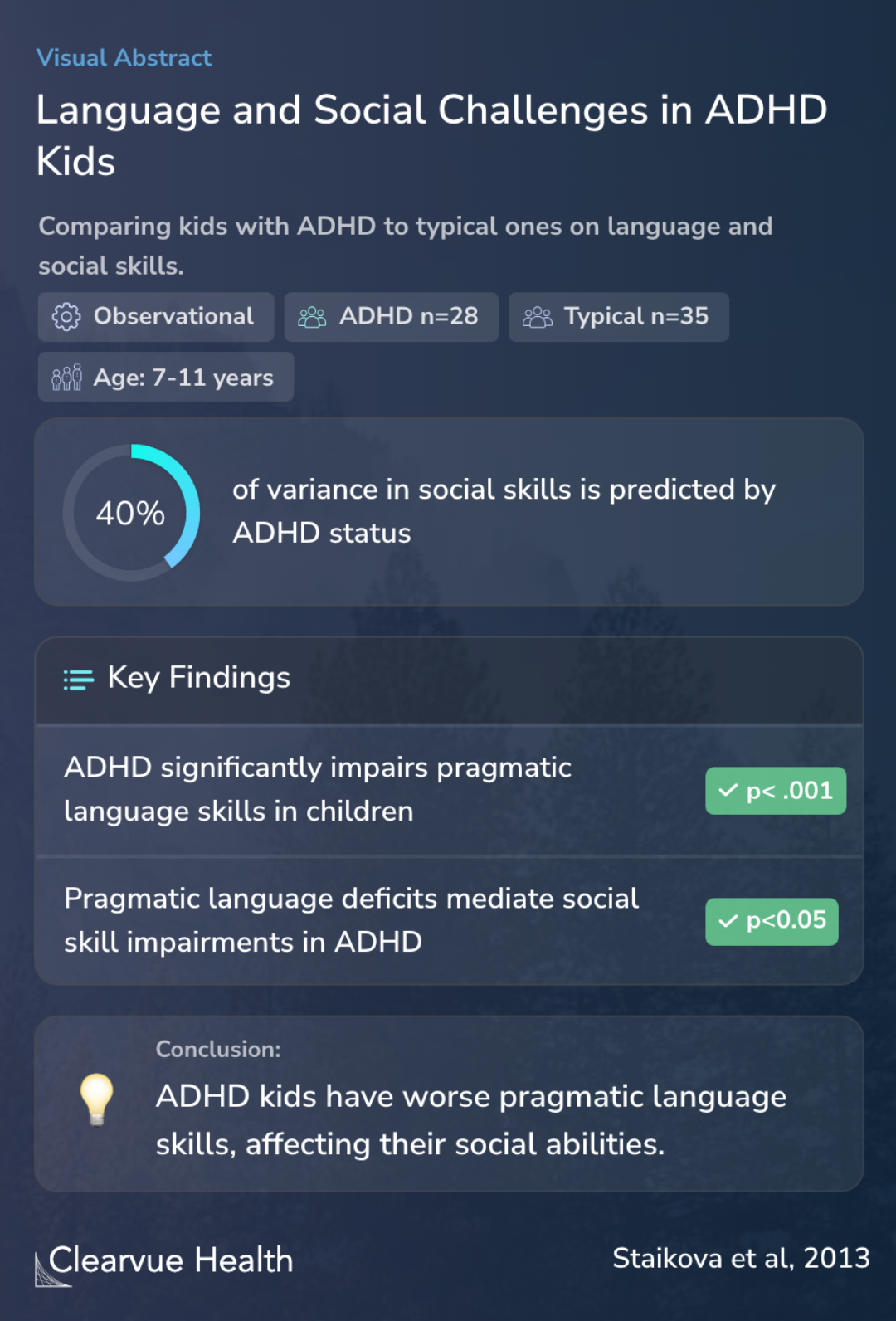Pragmatic deficits and social impairment in children with ADHD
Language and Social Challenges in ADHD Kids
Staikova E, Gomes H, Tartter V, McCabe A, Halperin JM

Objectives
The study dives into how kids with ADHD often find it hard to use language in social situations. This includes not just picking the right words but also understanding jokes, sarcasm, and body language. These challenges can make school and friendships tough for them. Unlike other kids, they might start talking later and have trouble with conversations. This is important because it affects not just their learning but also how they get along with others. The study aims to better understand these language challenges to help improve social skills in kids with ADHD.
Impaired social functioning has been well documented in individuals with attention-deficit/hyperactivity disorder (ADHD). Existing treatments for ADHD are effective for managing core symptoms, but have limited effectiveness at improving social skills, suggesting that social deficits in A...
Methods
In this study, 63 kids, some with ADHD and some without, aged between 7 and 11 years, were closely observed. The researchers looked at how well these kids could use language in everyday situations. This wasn't just about how many words they knew, but also about how they used these words in conversations and stories. Parents also shared their views on how their kids got along with others, giving a fuller picture of their social skills.
Sixty-three children (28 ADHD; 35 typically developing), ages 7-11 years, underwent a comprehensive assessment of pragmatic language, including parent ratings, standardized tests, and a narrative task. Parents also rated children's social skills on the Social Skills Improvement System.
Results
The findings were clear: kids with ADHD struggled more with using language socially compared to kids without ADHD. This wasn't just about the number of words they knew; even when that was taken into account, they still had difficulties. These language challenges were a big part of why they found it hard to make friends and get along with others. The study found that problems with language explained about 40% of these social difficulties.
Children with ADHD had poorer pragmatic language skills relative to peers across all measures, even after controlling for general language abilities. Furthermore, pragmatic abilities as measured by parent ratings, mediated the relation between ADHD and social skills.
Conclusions
The study concludes that many kids with ADHD face significant challenges with pragmatic language skills, which impacts their social interactions. This insight is crucial for coming up with ways to help these kids improve their social skills and overall quality of life. Other studies have also shown that ADHD affects not just kids but adults too, impacting their social life and mental health. However, there's hope as social skills can be improved with the right training and support.
Pragmatic language skills are impaired in many children with ADHD and may partially account for high rates of social impairment. Implications for treatment and possible prevention of social problems in children with ADHD are discussed.
Key Takeaways
Context
ADHD's impact on social life is complex and varies among individuals. A study by Sobanski et al. in 2008 found that adults with ADHD face many challenges, including less education, higher unemployment, and more mental health issues, regardless of their ADHD subtype. This underscores the broad impact of ADHD on social adjustment and mental health.
Another study looked at the long-term impact of ADHD on social lives and self-esteem: